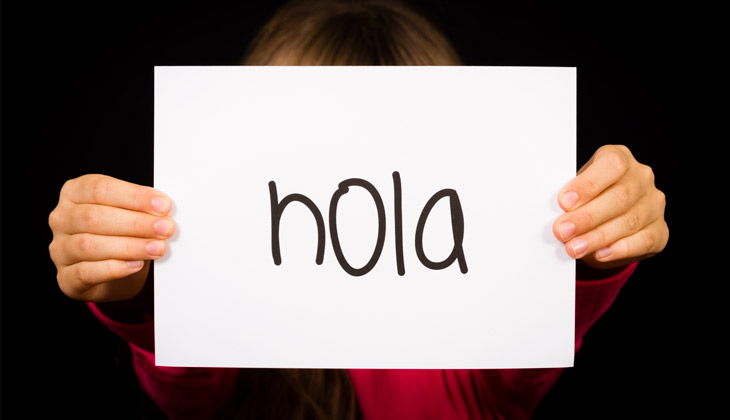If you arrive in Malaga with some Spanish under your belt, you'll soon notice that the people of Malaga don't exactly speak the Spanish you find in books. “Malagueño” is a variant of habla andaluza (Andalusian speak), a way of speaking that characterises the people of Andalusia.
General feautures of malagueño
In general, a distinguishing feature of malagueño is the absence of the final "s" in plurals. For example, instead of saying “las casas” (the houses), a malagueño would say “la casa”. So how do we know if we're talking about one house or many? In malagueño the difference between plural and singular is barely audible (but does exist). It can be heard through the agreement with the article or verb and the context in which it's spoken.
The same thing that happens with plurals also occurs with the participles of verbs. A common feature of all Andalusians is dropping the "d" placed between the final vowels of the participle. So malagueños would say "hemos comio" instead of "hemos comido" (we've eaten).
Another distinctive feature of malagueño is the so-called "ceceo" (pronounced "thetheo") which consists of using the "th" sound for every "s" or "z" in a word, or else the so-called "seseo" which is the opposite: using the "s" sound for words with a "z". A malagueño who speaks with a "ceceo" would pronounce "casa" as "catha", whereas those speak with a "seseo" would pronounce the word Spanish "zapato" as "sapato" instead of the usual "thapato". These features depend on the regions and towns.
In some parts of the Costa del Sol people use the formal term "ustedes" instead of "vosotros" for the the plural of "you". It's a colloquial usage, so if a malagueño asks you “¿Ustedes van a venir a cenar?” (Are you coming to dinner?) he is not addressing your group of friends formally.
Malagueño vocabulary
In addition to its general features, malagueño has its own lexicon. Forget about ordering a "café" or a "tostada" in a bar in Malaga... if you want the waiter to understand you'll need to ask for a “pitufo” or a “mollete” (the types of bread used for toast) and a "nube", "sombra" or "mitad" (types of coffee according to the milk they contain).
If there are lots of people in the bar you can say there is "una pechá de gente". And if you're embarrassed to talk to so many people you can say "me da fatiga". But if, despite everything, you really like the bar, you can call it "perita".
Now that you have this basic survival kit, here are a few more words and expressions you may hear in the Costa del Sol:
- Chorrarse: To slip
- Chorraera: A slide
- Guarrito: A drill (it comes from the brand name Warrington)
- Chavea: Boy
- Tollo: Clumsy
- Terral: A wind from Africa that causes a steep rise in the temperature
- Engorilao: Delighted, to really like something
- Alobao: Absent-minded
- Estar frito: To really want to do something
- Moraga: Barbecue on the beach
- Cenacho: An esparto basket with handles
- Cenachero: An old-fashioned street vendor selling fish
- Changuay: A shambles
- Biznaga: A typical flower in Malaga consisting of a bunch of Jazmins
- Madrevieja: Gutter
- Curiana: Cockroach
- Volantona: Cockroach with wings
- Chícharos: Peas
- Guarnío: Tired
- Hacer piarda: Skip class









